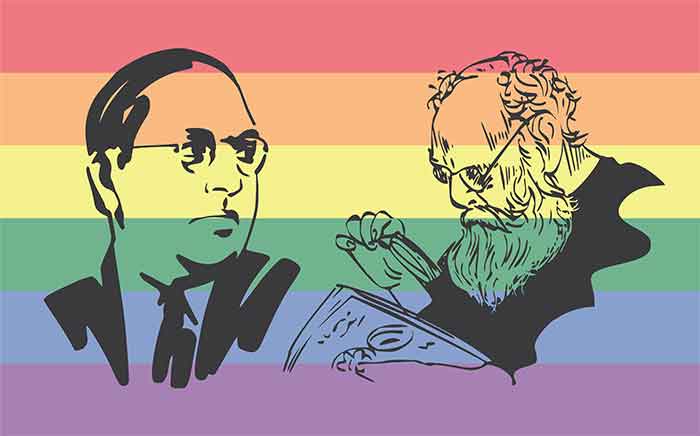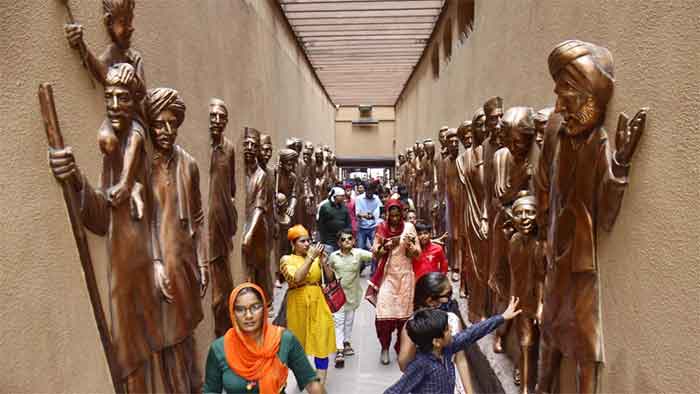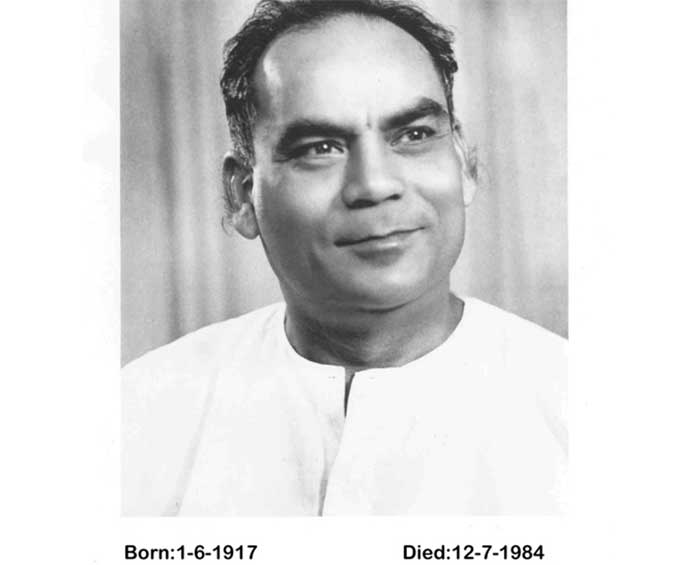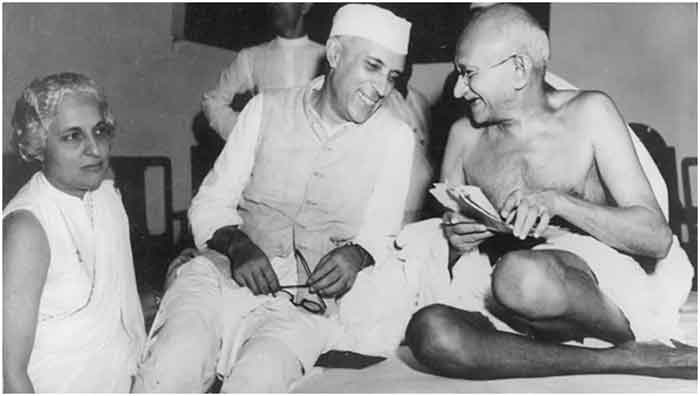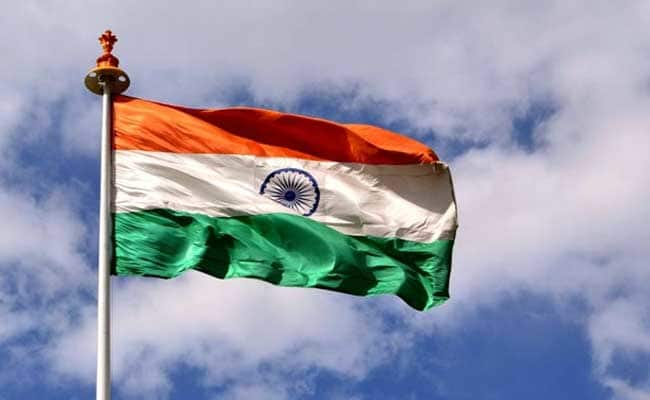
Citing Kepios.com, which “makes sense of what people are really do online” and helps people “identify changes in digital behaviour”, Datareportal.com indicates that internet users in India remained unchanged between 2022 and 2023. For perspective, these user figures reveal that 730.0 million people in India did not use the internet at the start of 2023, suggesting that 51.3 per cent of the population remained offline at the beginning of the year.
On 13 August, our honourable Prime Minister tweeted, “In the spirit of the #HarGharTiranga movement, let us change the DP of our social media accounts and extend support to this unique effort which will deepen the bond between our beloved country and us.” And his tweet was reposted by 14.9k followers till 1.15 pm, 14 August 2023. It was liked by 67.4k and viewed by 4 million. This is the power of his digital army, as illustrated by Swati Chaturvedi’s 2016 book, I am a Troll: Inside the Secret World of BJP’s Digital Army. One of the claims of Chaturvedi’s book, as discussed by a reviewer, Vir Sanghvi, is that the Bharatiya Janata Party (or the larger Sangh Parivar) uses volunteers and paid employees to function in concert and to execute centralised directives to “constantly peddle hate tweets and conspiracy theories and slander journalists”.
However, Modi’s harmless tweet is a plea to support the cause of the Har Ghar Tiranga movement, which will “deepen the bond between our beloved country and us.” It is a way of expressing our patriotism, love towards our motherland, and fatherland. But his tweet is inaccessible to the half of Indians. It is quite understandable who the target audience of his patriotic tweet is.
Simply put, love cannot be exhibited or publicised by changing one’s digital profile or uploading a picture of the national flag to social media. It’s a matter of internalisation that occurs in the innermost of one’s mind. Any public display of any love is simply a gimmick. Whenever love for anything, be it our land or our beloved or our parents, is put on show, it loses its essence, charisma, and innate value of splendour and ardour. Friends, don’t display love on social media platforms. Nurture it in your heart, and spread it through your acts. It’s so sacred and hallowed; hold it close to your heart. Don’t make it cheap. Please don’t sell it in the market.
Yesteryear, on 14 August, I wrote a poem on the Har Ghar Tiranga movement. The title was “A Paddler’s Tiranga.” The poem is given here:
My town is not hostile to paddlers
For its ease and grace, it has not driven them out of its periphery
But within a July week, they suddenly disappeared
With the blessings of the local gods,
The bloodied limbs sold pots and pans
And bought eco-friendly toys and
The bloodless veins, like abused street dogs, gaped for days,
And decided to stick to the old ways,
“What’s your good name?” I asked a paddler,
The tanned face with fragile limbs
They looked full at me and smiled like a child,
“Bolohari”, his Tiranga stuck to the rickshaw’s handlebar,
Waving in the wind,
“Who gave you the Tiranga?”
He looked bewildered and said,
“Why? I bought it at 20 to keep
Our pradhan mantri’ honour- ghar ghar mein tiranga,”
“It is not your ghar, i think.”
“I have no ghar, my rickshaw is my ghar, babu.
So I deck it with a Tiranga.”
I am moved; my eyes are teary.
Speechless, I move towards the fish market.
Such a story can be easily multiplied. A paddler can be replaced by a daily wage-earner, a day labourer, a flesh-seller, a pavement dweller, a scavenger, a rag-picker, and many like them. Let’s not talk about the vagabonds, the mad men and the mad women, the pages and the pages of public spaces such as bus stops and railway stations.
More than a decade ago, when I used to travel by the early morning train, I saw the Sealdah station filled with scattered lifeless limbs. The commuters abused and jumped over these corpses. It was a regular sight. With the passage of a decade, many have perhaps died. Many are still fighting like mad dogs for a space for the night. The day is a blessing for them. They will go to collect the refuse of the ‘city of joy’. They will go to beg or eat the leftovers available at surrounding hotels and restaurants.
“There is indeed a startling absence of compassion among a majority of well-to-do Indians towards the millions who have no advantages of birth to shield them from hinger, oppression, violence, squalor and humiliation,” wrote noted human rights worker Harsh Mander. In India, one will be astonished by “middle-class India’s capacity to look away when confronted with enormous injustice and suffering; by our society’s cultural comfort with inequality” (xi).
Modi is not different from other affluent Indians, of course not in respect of official posts, but in respect of the way of what Mander calls “looking away,” to ignore the millions of Indians who have no guarantee to have a meal day at each daybreak, and whose roof is the canopy of the open sky.
In a way, Modi cannot be blamed for his plea to show love on social media. We find nothing peculiar in his assertion of exhibiting love for our land. However, in his tweet, what we miss is that there is no message for his fellow Indians who have no access to a guaranteed income (not to speak of a smartphone or internet access), to a means of decent living and livelihood, to a way of living like a man, and not like a slave or a beast of burden.
What he is doing is simply looking away from the ugly truths and unpleasant Indian reality of everyday life—gruelling poverty wreaking havoc on millions of people, unpardonable squalor and toxicity across Indian cities and suburbs, unimaginable injustices against targeted communities taking place across the country—that is stealing the inner essence of Indianness from India.
In this context, Modi cannot be claimed as the most happening Indian political leader. He is at par with millions of other affluent and privileged Indians who feel comfort and take it as their status by bypassing the pollution around.
Abu Siddik teaches at Plassey College, West Bengal, India. He is a bilingual author and has been published in India and abroad. He has three critical books— Representation of the Marginalized in Indian Writings in English (Falakata College Cell, 2015), Misfit Parents in Faulkner’s Select Texts (Authorspress, 2015), Banglar Musolman (Sopan, 2018); two poetry books and a short story, published by Authorspress in 2020 —Rugged Terrain, Whispering Echoes, A Birdwatcher and Other Stories. Website: www.abusiddik.com
References
DATAREPORTAL. “DIGITAL: INDIA”, 13 February 203, https://datareportal.com/reports/digital-2023-india#:~:text=Kepios%20analysis%20indicates%20that%20internet,the%20beginning%20of%20the%20year., accessed 14 August 2023.
Modi, Narendra [@narendramodi]. Twitter, 13 August 2023, accessed 14 August 2023.https://twitter.com/narendramodi/status/1690578185807876096
Sanghvi, Vir. “I am a troll: Inside the secret world of BJP’s digital army.” Business Standard, 29 December 2016, available at: https://www.business-standard.com/article/beyond-business/i-am-a-troll-inside-the-secret-world-of-bjp-s-digital-army-116122801182_1.html, accessed 14 August 2014.
Mander, Harsh. Looking Away. Speaking Tiger, 2015.


